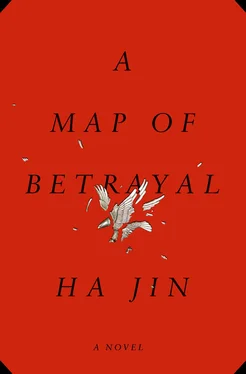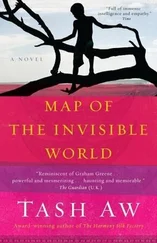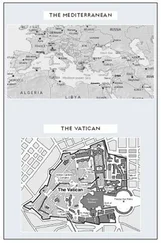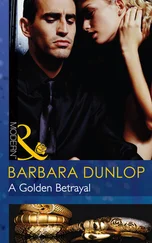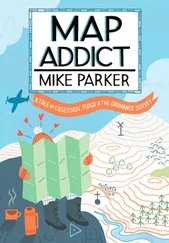One day after school, as Lilian was stepping into her house, she heard her mother talking on the phone. “To be honest, Marsha, I already feel like an old woman. It’ll be too hard to find a man willing to share family life with me.… Okay, I’ll think about what you just said. You know Gary’s very stubborn about child custody.… Maybe he and I should be separated for a while, just to give each other more space. That might be good for Lilian too.”
But that wasn’t what the girl wanted. That evening after mother and daughter had sat together and read two chapters from The Story of Crazy Horse , Lilian told Nellie that she would stay with her father if they were separated. “I don’t mind going to another school,” said the daughter. Her mother looked stunned and remained pensive for hours.
Lilian later tipped off her dad that Nellie sometimes talked with Marsha about divorcing him. “Thanks for the info,” Gary said with a weak smile. “Does your mom often drink beer or wine when I’m not home?”
“Uh-uh, I didn’t see her drink.”
“That’s good. If she uses alcohol, let me know, okay? I don’t want her to become an alcoholic like her father.”
To her credit, Nellie wasn’t fond of drink. Despite her many years of waitressing, she couldn’t taste any difference between red wine and white wine. In contrast, Marsha often took a glass when chatting with Nellie on the phone. Once tipsy, Marsha would confide all kinds of unseemly domestic troubles, such as her husband’s addiction to gambling — whenever he went to Las Vegas, a row would wait for him at home — and the couple’s regular use of marijuana and other drugs. As a result, they often fought over money. And their son pilfered cash from his mother’s purse (but she wouldn’t tell his father, afraid he might beat the boy black and blue). Yet whenever Marsha urged her to leave Gary, Nellie would say, “Well, I mustn’t rush. I must think more about this.”
Without fail, Lilian would give her father an update on their chat.
THE PREVIOUS NOVEMBER John Kennedy had been assassinated. At first Gary was so overwhelmed by the news that he couldn’t respond to it. Some of his colleagues grew emotional as they talked about it. David Shuman was mumbling about the event with his mouth slightly lopsided while tears glistened in his camel eyes. As he was listening to David, Gary burst out sobbing. He cried wretchedly, burying his face in his arms on his desk. That astonished his colleagues and convinced them that he was a true patriot, even more heartbroken and devastated than they were by the national tragedy. In fact, though saddened by the news, Gary wept also for another reason. He dreaded that the assassination of the U.S. president might trigger a world war if another country was implicated. His gut told him that the Soviet Union might have been behind it. Even China could have been an accomplice, if not directly involved.
For the whole spring and summer of 1964 he was restless, expecting the outcome of the FBI’s inquiry into the case and hoping that Beijing had had nothing to do with it. After a ten-month investigation, the results were announced in late September: Lee Harvey Oswald had acted alone in the assassination. Many of Gary’s colleagues shook their heads in disbelief, saying that the man couldn’t possibly have done it single-handedly, that there must have been an organization behind him. If not the Mafia, it could have been a hostile foreign power. Unlike them, Gary in secret heaved a sigh of relief.
Nevertheless, China made big news that fall. In mid-October it shocked the world with the explosion of its first atomic bomb. The country, though ravaged by famine and revolutionary hysteria, began coming back to the arena of international politics with a vengeance. All at once Mao was feared and condemned as a monster, but he was also celebrated by some as a farsighted statesman who’d had the aspiration and determination to put his country on the map regardless of the odds against it. A major Japanese newspaper even proclaimed: “With the success of the nuclear test China has become the number one power in Asia.”
Gary began to look into this matter and found that originally Mao had looked down on atomic bombs, though the United States had dropped two on Japan. In an interview conducted by the American correspondent Anna Louise Strong in August 1946, Mao said, “A-bombs are paper tigers that the U.S. reactionaries use to threaten people. The bombs appear fearsome but are not really that powerful.” Mao’s ignorant defiance alarmed even some leaders of the socialist countries. The French physicist Frédéric Joliot-Curie, a Communist who was Madame Curie’s son-in-law, had these words passed on to China: “Comrade Mao Zedong, to fight against nuclear weapons, you must first possess them.” That startled the chairman and set him thinking about how to make the bomb. He asked Khrushchev to help.
After long negotiations, the two countries signed an agreement in October 1957: the Soviet Union would provide for China a model of the atomic bomb, the blueprints, and the technical specifications. It would also send scientists to help China with the project. But the first expert did not arrive until the beginning of 1959, and he did nothing. More unfathomable and frustrating, in his pocket he always carried a handbook, which he would consult from time to time but wouldn’t let any Chinese see. The other Russians who came after him didn’t do much either. Then, in July 1960, quite unexpectedly, Khrushchev went back on his promise and withdrew all the two-hundred-odd Soviet experts serving in various areas of China’s nuclear industry. The Soviet leader had never liked Mao, though he showed his respect because the Chinese leader was more experienced. “Comrade Mao Zedong always acts as if God must serve him,” Khrushchev once observed.
Gary and his CIA colleagues all had thought that with the Russians gone, China would abandon its nuclear ambitions, but to everyone’s amazement, it pushed ahead. Hundreds of factories and thousands of scientists participated in the project. Many of these people lived in the desert in Xinjiang, working around the clock, totally dedicated though they were underfed and underpaid. Some died there, of illness or from becoming lost in the desert. The country was so resolved to build the bomb that Vice Premier Chen Yi declared at an industrial conference: “Even if we reach the point that we have to pawn our trousers, we must continue developing nuclear weapons!”
The relentless effort had finally produced a bomb and gave China a huge boost. The explosion also threw the United States a little off stride. More reconnaissance missions were flown by U-2s, but the planes were mostly shot down by Chinese SA-2 missiles. It was impossible to bring back photos of the nuclear base in western China. For months the White House had been pondering how to snuff out that dangerous program. Air strikes were no longer an option, a fact Gary gloated about in his diary. As an alternative, the CIA and Taiwan put together a contingent of paratroopers, all Nationalist soldiers specializing in demolition and night fighting and newly equipped with M16s. They would be air-dropped into the interior of China and proceed to destroy its nuclear facilities. This operation was code-named Thunderclaps. Together with the scores of commandos, some secret agents had already been sent to the mainland to prepare the operation.
While translating the exchanges between Taipei and Washington, Gary began to form a full picture of the undertaking. He also found its communications plans and the code names of some secret agents already in China. He checked out the documents, saying he’d have to work on them at night, and shot photos of them. In addition, he wrote a report that synthesized the information and described the operation in detail. He took an early vacation in June 1965 and went to Bangkok, a hot spot where, to Gary’s knowledge, several CIA officers had spent their time off lately. From there, a week later, he flew to Hong Kong and delivered the intelligence to Bingwen. Immediately three more men came from Beijing to meet with Gary. They were convinced that he was infallible in his analyses and clairvoyant in his predictions, which had been proved correct time and again. Within a month China apprehended most of the secret agents and thus thwarted the Thunderclaps operation before it could get off the ground. The CIA was mad at Taipei, believing that someone in the Nationalists’ rank and file had leaked the secret to Red China.
Читать дальше
